2023 Annual Conference

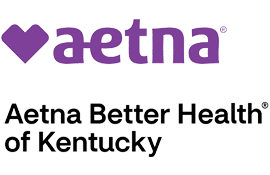
Diamond Sponsor
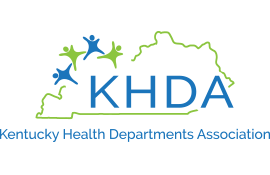
Diamond Sponsor

Platinum Sponsor

Platinum Sponsor
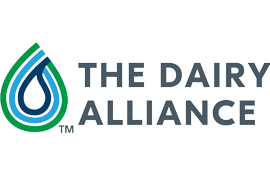
Platinum Sponsor
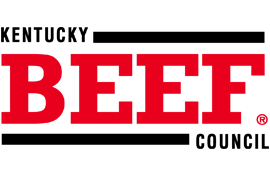
Platinum Sponsor
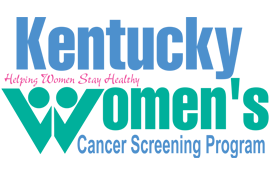
Platinum Sponsor
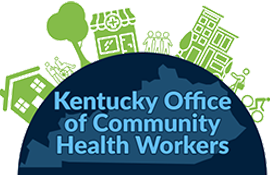
Platinum Sponsor
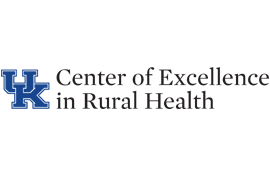
Platinum Sponsor
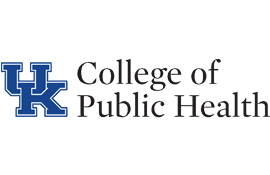
Platinum Sponsor

Platinum Sponsor

Break Sponsor
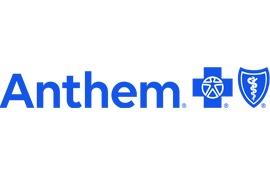
Gold Sponsor

Gold Sponsor

Gold Sponsor

Gold Sponsor
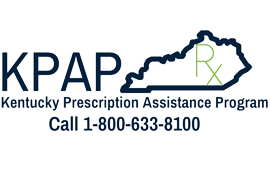
Gold Sponsor
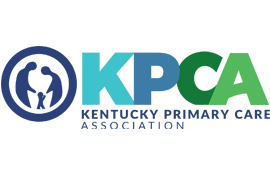
Gold Sponsor
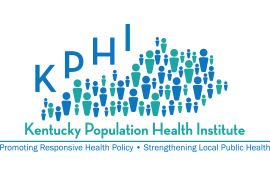
Gold Sponsor
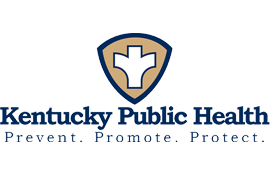
Gold Sponsor
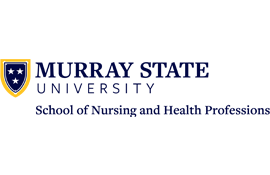
Gold Sponsor
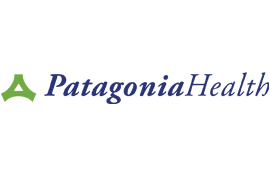
Gold Sponsor
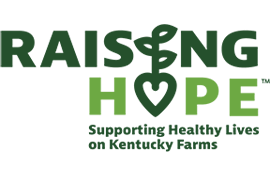
Gold Sponsor

Gold Sponsor

Gold Sponsor
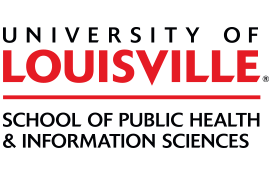
Gold Sponsor

Gold Sponsor
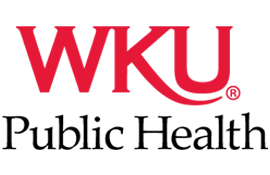
Gold Sponsor
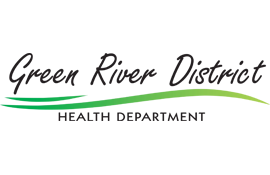
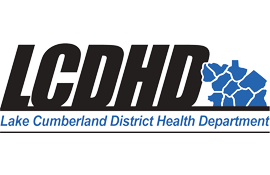
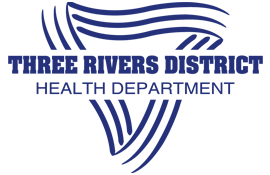
|
WEDNESDAY, APRIL 19, 2023 |
|
|---|---|
|
08:00 AM - 05:00 PM |
Student Engagement Pre-Conference Room: Ballroom B |
|
08:00 AM - 05:00 PM |
AOS & KPHIN Room: Ballroom A |
|
01:00 PM - 07:00 PM |
Registration Open |
|
01:00 PM - 05:00 PM |
Advocacy Committee Meeting Room: Crosswinds BoardRoom |
|
THURSDAY, MARCH 20, 2023 |
|
|---|---|
|
07:00 AM - 08:30 AM |
Breakfast - Registration Open |
|
08:00 AM - 09:00 AM |
Maternal care and childbirth: Concerns and outcomes for refugee and immigrant women in Warren County Warren County is a vibrant, multi-cultural community that is growing rapidly. The arrival and resettlement of refugees and immigrants is a source of pride for the community, but also presents health-related challenges. Local health care providers and public health departments are expanding their capacity to serve this linguistically diverse community, but it is not without occasional concerns and frustrations. This session presents the results of a mixed methods study on experiences of pregnancy and birth outcomes of immigrant and refugee women. Speakers: Susan Eagle, MPH PhD; Xiuhua Ding, PhD.; Manzar Rzayeva Room: Ballroom A What's the big DEAL about Public Health? The Kentucky Department for Public Health (KDPH) and the University of Kentucky College of Public Health (UKCPH) collaborated to provide DEAL (Discover, Experience, Apply, and Learn) Day, an opportunity for students to explore different areas of the public health system and potential career paths. DEAL Day was held in-person in Frankfort, KY the fall 2022. This opportunity qualified for Experiential Learning and Practicum service hours. DEAL Day Activities included an overview of the 10 essential public health services and interaction with KDPH leadership, a tour of facilities including the state laboratory, emergency preparedness and response warehouse and state Capitol. There was also an in person demonstration of the mobile harm reduction unit, mobile pharmacy, and robotic milking system for milk safety practices. There were over fifty students in attendance. This session will discuss the lessons learned during the event, including evaluation results showing the most favorite spotlights of public health careers as well as plans for continuous quality improvement for future iterations. Come hear how students were engaged, as well as how current public health practitioners were able to showcase potential careers and share knowledge and experience with participants. Speakers: Janie Cambron, RS, MPH; Lindsey Brewer, BSPH Room: Ballroom B Barren River District's Efforts to Prevent Active TB in Latent TB Patients About a quarter of the world’s population lives with an inactivated, latent Tuberculosis infection (LTBI). Up to 10% of untreated LTBI can develop into active Tuberculosis (TB) infection. Those with LTBI are not infectious and have a decreased risk of developing active TB infection if they complete LTBI therapy. Warren County, located in the Barren River District of South Central Kentucky, has one of the highest rates of confirmed active TB in the Commonwealth. The Barren River District Health Department (BRDHD) has an established LTBI program to address the high burden of LTBI. Speaker: India Martinez, MPH Room: Salon B Toxoplasmosis as a neglected infectious disease; Molecular epidemiolopy and seroprevalence Background: Toxoplasmosis is a disease caused by Toxoplasma gondii, often transmitted to humans through contaminated drinking water, and consumption of infected raw meat. It can also be transmitted by blood transfusion and cause serious complications like encephalitis in immunosuppressed blood recipients. However, there is a dearth of information on its burden and associated factors. This study investigates the prevalence and risk factors associated with Toxoplasma gondii in healthy blood donors using serological and molecular diagnostic methods. Methodology: A cross-sectional study was carried out among blood donors. Two hundred and seven blood donors were interviewed using a semi-structured questionnaire to determine their socio-demographic and possible exposure. Blood samples were obtained from each participant. Serology was performed on the samples using a third generation Enzyme-linked immunosorbent assay (ELISA) as a screening method and conventional Polymerase chain reaction (cPCR) was used as a confirmatory test. The sera were tested for anti-Toxoplasma gondii IgM. The buffy coat of each sample was evaluated for the detection of T. gondii DNA by cPCR. Socio-demographic variables and the risk factors associated with T. gondii infection in blood donors were analyzed using logistic regression to estimate statistical significance (p < 0.05) and odds ratio. Results: A total of 270 blood donors (mean age: 34.4 ±8.4, range 18-56 years old) were recruited for the study, the prevalence of Toxoplasma gondii was 61.1% using ELISA IgM anti-Toxoplasma gondii while by cPCR it was 6.3%. Of the hundred and sixty-five (165) seropositive samples by ELISA IgM anti-Toxoplasma gondii, 5.9% were Toxoplasma gondii DNA positive and one sample (0.4%) previously negative by ELISA IgM anti-Toxoplasma gondii was found positive using conventional PCR. The genotypic assay (cPCR) was used as the gold standard, and the sensitivity and specificity for IgM anti-Toxoplasma gondii ELISA were 94% and 41.1% respectively (p=0.003). TheriskofToxoplasmagondiiinfectionwasmoreindonors who consumed unwashed vegetables, unpasteurized milk and unwashed fruits as well as non-vegetarians. Conclusion: The prevalence of 6.3% of Toxoplasma gondii obtained in this study was high relative to many of the reports of studies in other parts of the world. The consumption of undercooked meat, drinking untreated water and unpasteurized milk were identified as risk factors for Toxoplasma gondii exposure. These factors can be considered potential sources of the Toxoplasma gondii parasite. Routine screening of Toxoplasma gondii infection using PCR is therefore recommended for incorporation into blood transfusion services. Speakers: Amoo Abimbola; Richard Baumgartner; Ruth Carrico Room: Meeting Room 1 & 2 |
|
08:15 AM - 11:30 AM |
Registered Sanitarian Exam Room: Crosswinds Board Room |
|
09:15 AM - 10:15 AM |
Delafield Co-Op Market: A Social Enterprise At WellCare Health Plans, we understand being healthy is affected by so many parts of your daily life. In the Community Engagement Program, WellCare works to identify available social services to help improve the health of members and lower the overall cost of healthcare. We believe a more integrated approach to your health means a better you. Unlike other health plans, which simply refer members to social services, WellCare tracks referrals and uses data to identify gaps in the social service network to create proactive solutions and partnerships to help transform the social service delivery system. HOTEL INC focuses on Relief, Recovery, and Development. By working together, Holistic Stability Plans are developed after assessing gifts & barriers in the following areas: Housing, Health, Nutrition, Education, Legal, Relational, Employment, Spiritual, Transportation. Working with neighbors and asking them what their needs and wants are led to the development of the Delafield Co-Op Market. A market in the Delafield neighborhood that offers fresh, local, healthy food that accepts SNAP benefits and provides a discount to those living in the West End of Bowling Green. We are all working together to help those in need reach self-sustainability in their own lives. During the session, presenters will discuss the partnership, the project, and the outcomes. Speakers: Jennifer A Wilson, MPH; Rhondell Miller Room: Ballroom A Administrative Regulation and Legislation 101 This session will provide a basic understanding of the legislative and regulatory process in the state of Kentucky. I will share information regarding the difference between a regulation and a statute and explain how the passage of bills during a legislative session, translates into administrative regulations. I will also discuss the different types of legislative sessions, legislative committees, and the composition of the legislature. This session will also provide a high level overview of how a bill becomes a law. Once a bill becomes a law, many times, the law requires amendment or creation of administrative regulations. I will also discuss the different types of administrative regulations and the promulgation process. The session will end with a demonstration of the Legislative Research Commission's website. This demonstration will show attendees where to search for laws, regulations, bills, meeting calendars, live stream broadcasts of legislative committee meetings, and much more. Speaker: Sarah A. Cooper Room: Ballroom B What the Flock: Kentucky's Response to HPAI in 2022 The on-going Highly Pathogenic Avian Influenza (HPAI) outbreak subtype: H5N1 is the largest outbreak of its kind ever reported in the United States. As the second state to identify infected commercial flocks, the Kentucky Department for Public Health (KDPH) and outside partners had limited resources to respond to the event, communicate with LHDs and providers, and provide guidance on how to monitor those exposed. From farms in far western Kentucky to backyard flocks in Northern Kentucky, KDPH has worked diligently to build relationships with partners for improved response while responding in a manner that shines on the national stage. Speakers: Kelly Giesbrecht, DVM, MPH; Blake Johnson, MPH, MSW Room: Salon B Building a Strong and Supported CHW Workforce: Successes and Lessons Learned Community Health Worker (CHW) programs have long been recognized for their potential to improve the health of underserved communities and advance health equity. Kentucky has been home to localized CHW programs since the 1990s. The last ten years has seen the introduction of a standardized certification process for CHWs, including required core competencies and formalized training, and mentorship. Additional funding has also led to a dramatic increase in the number of CHWs working in the state, as well as the opportunity to collect data about their activities. CHWs work in a variety of settings, including community-based organizations, clinics, managed care organizations, and local health departments. Addressing needs such as health education and treatment support, and health system navigation, they also address barriers related to social determinants of health. This presentation will detail the growth of CHW programs in Kentucky, description and measurement of their current work, and potential directions for the future. Speaker: Laura Eirich, MPH Room: Meeting Room 1 & 2 |
|
10:30 AM - 11:30 AM |
After a year in development, Kentucky’s first ever Hepatitis C (HCV) Elimination Plan was released in August 2022. Since this time, a tremendous amount of work has been completed by many individuals and organizations throughout the Commonwealth. The KDPH Viral Hepatitis Program, along with numerous partners, has embarked upon several implementation endeavors and special projects designed to prevent new HCV infections, promote screening and treatment, improve surveillance and data usage, and focus on coordinated, integrated efforts which approach HCV in the context of a syndemic. This session will review Kentucky’s Elimination Plan and the progress made thus far, including a look at strategies involving our priority populations. Larger projects include promoting HCV education, prevention, screening, and treatment in and around corrections spaces, taking on Medicaid policy associated with HCV treatment, and preparing HCV and HBV outbreak response strategies. Other, ongoing and future projects seeking to eliminate the virus for Kentuckians will also be discussed, along with the challenges encountered and the valuable lessons learned from these situations. The incredible complexity of projects being undertaken means that many challenges are expected yet no less daunting. Navigating the bumps along the way is part of implementation. Strategies for sustainability, engagement, and effective evaluation are continuing topics for discussion and improvement among entities throughout the state. Lastly, HCV elimination is an all-hands-on-deck venture, so opportunities to be involved will be described. Speakers: Dia J. Obonyo, DrPH; Claire Holladay, MPH Room: Ballroom A Employment Law Considerations for Health Departments This session will focus on common employment law issues faced by Local Health Departments, including First Amendment and Social Media, Sexual Harassment, and Progressive Discipline. Speaker: Kristen Worak Room: Ballroom B There is growing interest across the Commonwealth in developing and expanding mobile crisis intervention services, but how do you know which intervention is right for your community? This presentation describes the value of using implementation science to guide the development of mobile crisis intervention using Louisville Metro’s 911 alternative response intervention as a case study. Speakers: Brian P. Schaefer, PhD.; Melissa Eggen, MPH; Sara Choate, PhD.; Susan Buchino, PhD.; Liza Creel, PhD. Room: Salon B Building and Implementing REDCap for Health Department Use: A Training Session for Beginners Maybe you have heard of REDCap, but wondered how you could get started using it. This training session is for all beginners, focusing on project setup to sending surveys. Bring your laptop, a few ideas, and your presenters will help to get your project kick-started. Although REDCap has been available since 2005, the Needle Exchange Program (NEP) was the first to use it solely for data collection to satisfy grant requirements in the late 2010s. It was not until COVID-19 in 2020, that health departments at all levels (state, regional and local) were really enabled to acquire the program and use it to create large scale projects for contact tracing response efforts. It was out of necessity that users had just-in-time training, learning the design elements of the program, to be able to manage the amount of data that transpired from the pandemic. Now, REDCap is quickly transpiring for use in different capacities, with projects being tailored and implemented for various data collection strategies at all levels of public health in Kentucky. As interest in REDCap has emerged with local health departments sharing success stories, individuals struggle with knowing how to get started. Understanding project setup, question development, skip and conditional logic, survey distribution, action tags, user rights, and program applications such as reports and exports are the fundamental elements that a REDCap user needs to be familiar with to be successful. However, training environments are limited and most of the presenters gleaned experience through hours of personal research on the internet and testing in the development environment. It is apparent that if local health departments would like to utilize REDCap for different program activities, a hands-on training session will provide a catalyst for implementation. Speakers: Hollie Sands, MPH; Christopher Wilkerson; Gunnar Kennedy, MPH; Kala Adams, CSW Room: Meeting Room 1 & 2 |
|
11:45 AM - 12:45 PM |
Break with Exhibitors and Poster Viewing Room: Prefunction |
|
12:45 PM - 02:45 PM |
Welcome, Presentation of Colors, National Anthem, Opening Remarks, Keynote Speaker Dr. Alfgeir Kristjansson is an Associate Professor of Public Health at West Virginia University (WVU) School of Public Health and Center PI for the West Virginia Prevention Research Center (WVPRC), a senior researcher with ICSRA, and lead evaluator for Planet Youth. He earned his PhD in Social Medicine from the Karolinska Institute in Sweden in 2010 and was a post-doctoral fellow at Columbia University in New York City between 2010-2012. Dr. Kristjansson has published widely on the Icelandic Prevention Model, as well as more generally on adolescent behavioral development and the well-being of children and youth. Currently, he is the Principal Investigator (PI) of several US-based federally funded studies, including the Young Mountaineer Health Study funded by NIAAA, and the Integrated Community Engagement (ICE) Collaborative funded by the Centers for Disease Control and Prevention (CDC) via the WVPRC. He has published over 110 peer-reviewed manuscripts in scholarly journals within public health, health education, preventive medicine and multidisciplinary journals focused on adolescents. CAPT Douglas Thoroughman is a U.S. Centers for Disease Control and Prevention (CDC) Career Epidemiology Field Officer (CEFO) who is assigned to the Kentucky Department for Public Health (KDPH), where he currently serves as the Deputy State Epidemiologist. He earned a PhD in Epidemiology at Emory University in 1996 and joined CDC’s Epidemic Intelligence Service (EIS), serving at Indian Health Services’ (IHS) Headquarters Epidemiology Program in Albuquerque, NM from 1996-2002. He took one of the first three CEFO positions nationally in Kentucky in 2002, where his assignment has been to help build public health preparedness and epidemiologic capacity. He has served as the Deputy State Epidemiologist for Kentucky since 2013 and as the Acting State Epidemiologist for four of those years. Dr. Thoroughman has worked many area of public health throughout his 20 years in Kentucky, as well as responding locally, nationally, and internationally to public health crises as a US Public Health Service Officer. Speakers: Brittany Parker, KPHA President; CAPT Douglas Thoroughman - "A Brief Look at Public Health History in Kentucky"; Alfgeir Kristjansson, PhD, Associate Professor, West Virginia University School of Public Health; Center Co-Principal Investigator, West Virginia Prevention Research Center Room: Ballroom CD |
|
02:45 PM - 03:15 PM |
Break with Exhibitors Room: Prefunction |
|
03:30 PM - 04:30 PM |
Creating Eagle-like Leadership in Youth-Planning a Regional Youth Summit This session will review the process of how a community-based group of over 60 partners created a regional youth summit offering education, resources, and support to help youth fight against the dangers of vaping/tobacco. It will overview the near peer student experience in building leadership and advocacy skills as well offering education about mental health awareness and mental health stigma. This review will highlight the summits rigid time frame, planning process, sessions, connections an evaluation. It will look at ongoing school advocacy projects and coordinated efforts for this summit to be a sustainable yearly event around Red Ribbon Week. Speakers: Linda Bates, BSW; Mary Schneider MA, LPAT; Sarah Olliges Room: Ballroom A Employment Law Considerations for Health Departments This session will focus on common employment law issues faced by Local Health Departments, including First Amendment and Social Media, Sexual Harassment, and Progressive Discipline. Speaker: Kristen Worak Room: Ballroom B Characterizing Kentucky’s Syringe Services Programs Over the Years: 2018-2022 Kentucky Syringe Services Programs (SSPs) became legalized in 2015. Currently, 82 SSPs operate in Kentucky – the highest number of SSPs in any state or municipality in the United States. Despite the extensive number of interventions, limited data is available on the overall impact and growth of services. This presentation will describe key indicators of SSPs in Kentucky using data collected from 2018-2022, including number of clients served, syringe return rate, naloxone kits distributed, HIV and hepatitis C screenings performed, and referrals to educational and substance use services. This session will help to better understand the development of SSPs in Kentucky. Speakers: Oshea Johnson, PhD, MA; Jennifer Duncan, MPH; Eleena Dhakal, MPH; Chase Barnes, MPH; Genesis Robinson, MPH Room: Salon B Photovoice is well-suited to increase engagement of diverse perspectives in local health department (LHD) community health assessment (CHA)/community health improvement planning (CHIP) practice and has been highlighted in the latest Public Health Accreditation Board standards as a possible CHA primary data collection strategy. The goal of this session is to demonstrate how Photovoice improves engagement and equity in CHA/CHIP by presenting a case study of the Photovoice method’s integration into the 2022-23 Clark County Health Department CHA. Speakers: Margaret McGladrey, PhD; Jennifer Gulley, MPH, BSN, RN; Angela Carman, DrPH Room: Meeting Room 1 & 2 |
|
04:45 PM - 06:00 PM |
Reception |
|
FRIDAY, APRIL 21, 2024 |
|
|---|---|
|
08:00 AM - 09:00 AM |
Visit Exhibit Hall Room: Prefunction Area |
|
08:00 AM - 09:00 AM |
TBD Speaker: Dr. Luann Reed, President, Kentucky League for Nurses Room: Hartland Salon Preventing and Overcoming Burnout While Caring for Others TBD Speaker: Michelle Nietert, M.A., LPC-S Room: Meeting Room 1 |
|
09:15 AM - 10:15 PM |
Using Real-Time Data for the Community Health Assessment to Make Informed Decisions Community Health Assessments (CHA) are part of the public health accreditation process, one of the foundational functions of Public Health Transformation in Kentucky, and provide the foundational data for community health programming. One of the issues with conducting community health assessments is the use of data that can be years to decades old; thus, we are making current health decisions using outdated data. This impacts the accuracy of the health issues the community is facing today. Marshall County Health Department and Dr. Miranda Terry developed an innovative approach by obtaining real-time data from our community partners (e.g., hospitals, police, courts) to make informed decisions to tackle today’s health issues with the purpose to narrow down to (1) more specific, (2) actionable, and (3) measurable health issues in Marshall County. This session will discuss the innovative approach to the CHA process used by Marshall County Health Department as well as an example of community programming and SMART goals created from the results. Speakers: Miranda Sue Terry, PhD; Shay Glover, B.S.; and Billy Pitts, MHA, MHR Room: Ballroom A Mining community health measurements does not have to be a struggle, but we know that it can certainly feel that way. Traditional measurement development strategies impose a variety of challenges to local governmental public health professionals. For example, navigation of the complicated data collection process, inconsistent data benchmarks, and expensive survey software are some of the most frequently reported issues voiced by members of NACCHO (NACCHO, 2021). In response to these ongoing issues, the Local Health Department Academy of Sciences (AOS) is committed to increasing measurement transparency through the establishment of a collaborative framework. During this session, leadership from the AOS Kentucky Group will share more about the AOS values and what we can do for you to improve efficiency and effectiveness of survey development, implementation, and data comparison at the local, state, and national level. This session will culminate with a facilitated workshop for participants, in which they will have the opportunity to review the game plan created by current AOS members and have the opportunity to provide feedback on their needs at the local or state level. Speakers: Elizabeth Poynter, MPH; Carrie Conia, MBA; Shay Glover; Marina Rust, BA Room: Ballroom B An Overview of the Kentucky Drug Overdose Alert System (KDOAS) Nonfatal opioid overdoses remain an endemic public health problem in the state of Kentucky, but to date, there has not been a statewide drug overdose cluster detection and alert system put in place. Using R and SaTScan, a semi-automated, prospective space-time permutation-based cluster detection and monitoring surveillance system called Kentucky Drug Overdose Alert System (KDOAS) has been created to monitor for nonfatal drug overdose clusters using Kentucky syndromic surveillance data. Since its creation in early 2022, the system has identified four all-drug overdose clusters by county of residence, three all-drug overdose clusters by treatment hospital, two opioid overdose clusters by county of residence, and four opioid overdose clusters by treatment hospital. This presentation will cover current Kentucky hospital participation in syndromic surveillance, how drug overdoses are identified in syndromic surveillance data, what SaTScan is, how KDOAS works, what constitutes a drug overdose cluster, limitations of the system, and how the system can be used to improve community situational awareness and help reduce drug overdose deaths in Kentucky. Speaker: Andrew Farrey, MPH Room: Salon B The Kentucky Department for Public Health rolled out it’s most recent version of the Strategic Plan in January 2022. Included in it is a set of overarching strategic priorities along with broad goals and objectives under each. It all looks good on paper but how do we ensure the Strategic Plan is implemented throughout the Department? The Performance Management Committee kicked off in 2022 under the newly established Office of Performance Improvement and Accreditation (OPIA) which is housed in the Division of Prevention and Quality Improvement. This group representing a cross section of KDPH staff and leadership will be responsible for monitoring the progress of specific performance management objectives for the strategic plan, along with other plans, including the SHIP and other benchmarks. The strategic champions and their respective accountability partners will play a key role in working across the department to ensure each division has identified activities and projects which align with each of the strategic priorities. Once each division has identified the activities, a REDCap survey will be used to monitor each divisions’ progress toward those activities. The survey tool will also house a database from which to report progress, monitor trends and identify potential quality improvement opportunities. Speaker: Jan Chammness, MPH Room: Meeting Room 1 Working with the Homeless – COVID and beyond During COVID, Barren River District Health Department started a workgroup to bring agencies that work with the homeless community together to get information to them about COVID and work together to solve problems encountered with the support of the county Emergency Managers. Speakers: Janarae Conway, BS; Jarod Hines, RN; Aaron Ashby-Boyd; Crystal Kingrey, BS Room: Meeting Room 2 |
|
10:30 AM - 11:30 PM |
Music is a meaningful part of our lives as individuals and communities. We spend billions each year purchasing music, attending concerts, and playing or singing music of our own. Music is a key part of communal experiences from weddings and funerals to baseball games. Music is ubiquitous. Can music be a tool for population health? This session will seek to answer that question with examples of music currently in use to promote public health, an examination of the dynamic cross-cultural impacts of music, and available scientific data for this emerging public health field. Speaker: Laura Foley, CAP Room: Ballroom A This session will include an introduction to the purpose and specific components of a strategic planning process. Results of a listening process from two communities who discussed what they learned about their communities and their staff during COVID-19 and natural disasters will be shared. Tools will be discussed that guide an organization to consider future events that may disrupt day-to-day public health department operations such as a FMEA (Failure Modes and Effects Analysis) for a strong strategic planning process. Speaker: Angela Carman, DrPH Room: Ballroom B Dead People Don’t Recover: A First Responder Overdose Rescue Kit Leave Behind Program Naloxone is effective at reducing overdose deaths. However, naloxone wears off 30 – 90 minutes post-administration. Opioids will likely remain in a person’s system after naloxone, necessitating ongoing monitoring to prevent cessation of breathing. Despite that, Whitley County ranks 4th among 21 Appalachian Kentucky counties for the rate of patient refusal of transport to the hospital by EMS for a suspected overdose. The Health Department in this rural county implemented a First Responder Overdose Rescue Kit Leave Behind Program to increase the availability of naloxone in the community and mitigate the potential impacts of EMS transport refusals. Speakers: Marcy Rein, RN MPH; Kathleen Croley, BS Room: Salon B Predictors of the Timing of Prenatal Care Initiation in Kentucky PRAMS Cohorts, 2017-2020 Prenatal care has been associated with decreases in maternal and perinatal morbidity and mortality, including preterm birth and low birthweight. Prenatal care consists of services such as risk counseling, review of family history and genetics testing options, education, referrals to needed services such as smoking cessation, and more. Early entry into care, typically defined as the first twelve weeks of pregnancy, provides an opportunity to identify potential risks to the woman and/or fetus, create a comprehensive plan for care throughout pregnancy, and prepare for labor and delivery. We used a regression model to analyze Kentucky PRAMS data from 2017-2020 for the purpose of identifying factors associated with the timing of prenatal care initiation among women in Kentucky. Among the 2,700 women in our sample, we found that 88.6% initiated prenatal care in the first 12 weeks of pregnancy. Overall, women with less than a high school education, those without private insurance, women who were unsure they wanted to be pregnant, and Black women were less likely to initiate early prenatal care. These findings have important implications for providers, community-based organizations serving women, and policymakers. In this session, we will share key highlights from our study, identify data-driven practice and policy solutions to increase early engagement in prenatal care, and invite workshop attendees to participate in a discussion designed to identify strategies to improve prenatal care initiation and overall utilization among women in Kentucky. Speakers: Melissa Eggen, MPH, PhD Student; James Cousett, MPH Room: Meeting Room 1 What is Crisis Standard of Care and the different activation levels in healthcare? In the event of a large-scale disaster, either a no-notice event such as a natural disaster or a prolonged situation such as a pandemic, there is the potential for an overwhelming number of critically ill or injured patients. In these situations, certain medical resources may become scarce and prioritization of care may need to be considered. There are several ethical principles to guide healthcare practices to include: fairness, duty to care, duty to steward resources, transparency, consistency, proportionality and accountability. The primary goal of crisis standards of care is to maintain operations and increase capacity to preserve life and the safety of patients and ensure appropriate healthcare delivery to the community. In order to meet the goal in times of severe crisis, healthcare delivery systems may need to alter the way they do business. This usually centers around patient care areas, supplies and staffing. Healthcare systems will usually move into contingency capacity to attempt to normalize operations and prevent activating crisis capacity which is a last resort to provide care for the community. During the Delta surge of the COVID-19 pandemic, a few healthcare facilities did activate crisis standards of care for staffing. This session will discuss why a facility could activate crisis standards of care and the potential outcomes from the decision. The session will also discuss why this is important for public health professionals. Speaker: Angela Kik BSN, EMT Room: Meeting Room 2 |
|
11:45 AM - 01:00 AM |
KPHA Awards Lunch Room: Ballroom CD |
|
01:00 PM - 01:30 PM |
KPHA Business Meeting Room: Ballroom CD |
|
01:30 PM - 02:00 PM |
Final Break with Exhibitors Room: Prefunction Area |
|
02:00 PM - 03:00 PM |
Legislative Panel Room: Ballroom CD |
|
POSTERS |
|
|---|---|
|
A Logistics Approach to Improve Medication Reconciliation in the Outpatient Clinic Setting |
|
|
Access and Functional Needs in Kentucky |
|
|
Betel Nut - An Addiction You Didn’t Know |
|
|
Breast Feeding Among African American Versus White Mothers |
|
|
Delivery-Related Healthcare Utilization Among Pregnant Women with Spinal Cord Injury or Paralysis in the United States |
|
|
Efficacy of a Cultural Educational Intervention to Increase Knowledge, Awareness and Self-Reported Proficiency of Obstetric Nurses Giving Care to Laboring and Peripartum Somali Mothers in Louisville KY |
|
|
Empowered by the Sun: Exploring the Intersections of Housing Justice and Green Technologies in Louisville, KY |
|
|
Equine Health During Historic Eastern Kentucky Flooding |
|
|
Examining the Impact of Universal Hepatitis C Screening in Perinatally Exposed Infants |
|
|
HIV/AIDS Knowledge Among Students Attending a Kentucky University |
|
|
Human Papillomavirus Vaccination and the Impact on Sexual Activity Among Kentucky University Students |
|
|
Knowledge and Behaviors Related to Cervical Cancer Do Educational Interventions Matter? |
|
|
Knowledge Regarding Women’s Health: A Study of Kentucky University College Students |
|
|
Oral Hygiene Behaviors and Prevalence of Dental Caries for Students Residing on a Kentucky University Campus |
|
|
Passing Policy in Appalachia: A Look Into Smoke-Free Policy Work in Eastern Kentucky |
|
|
Perceptions, Beliefs, and Attitudes Regarding Monkeypox - Virus Among Kentucky College Students |
|
|
Postpartum Depression: A Study of Knowledge, Attitudes, and Beliefs |
|
|
Reduce Screen Time KY - The Creation of a Data-Driven Program Plan |
|
|
Risky Sexual Behaviors Among Male and Female Adolescents in Kentucky |
|
|
Sense of Belonging on Campus: LGBTQ |
|
|
Sun Safety Education: A Glance at Calloway County Schools |
|
|
The Kentucky’s Perinatal Quality Collaborative (KyPQC) Implementation Process of the KyPQC’s First Initiatives and AIM Patient Safety Bundle to Address Substance Use Disorder in Kentucky |
|
|
The Relationship Between Social Media Use, Mental Health, Self-Esteem, and Substance Use among Kentucky College Students |
|
|
The Role of Sleep Apnea in APOE-Alzheimer's Disease Pathway |
|
|
The Social Determinants of Health and Reentry: An Exploratory Study |
|
|
Triggers of Migraine Headaches in Kentucky College Students |
|
|
Utilization of An Alternative Responder Model to Address Behavioral Health Care Related Calls to 911 in Louisville, Kentucky |
|
|
Workplace Violence Among Young Black Workers Ages 18-24 in Southcentral Kentucky |
|
|
Youths’ Perception of Road Safety Behaviors in Two African |
|